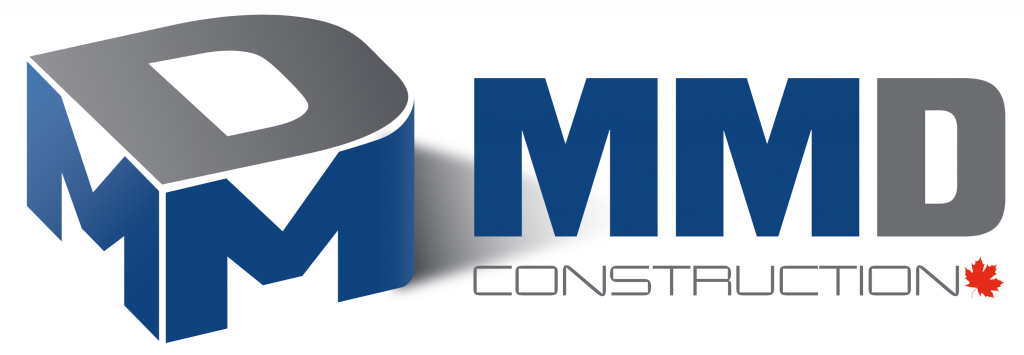Business spaces communicate company values before employees speak or products impress visiting clients and partners. Commercial renovation firms rebuild interiors matching evolving brand identities and operational needs that outgrow original designs. Like tailors who alter suits as bodies change, skilled contractors adapt buildings to fit growing companies perfectly.
The Case For Professional Expertise
Amateur renovation attempts often cost more through mistakes than hiring experts from project starts. Commercial renovation firms bring specialized knowledge about building codes, permit processes, and construction sequencing that amateurs lack completely. Their experience prevents expensive errors that plague DIY efforts regardless of good intentions and careful planning.
Complexity Beyond DIY Capabilities
Code Compliance Navigation
Building regulations govern everything from fire exits to bathroom ratios requiring professional interpretation and application. Violations discovered during inspections halt projects causing expensive delays and rework that destroy budgets. Licensed contractors understand local codes preventing compliance problems that amateur renovators encounter repeatedly.
Multi-Trade Coordination
Successful renovations require electricians, plumbers, HVAC techs, and finish trades working together in proper sequences. Firms manage these specialists ensuring each completes work before the next trade begins critical tasks. DIY coordinators struggle with scheduling conflicts that extend timelines and increase costs dramatically.
Permit Management
Professional firms handle permit applications, inspector coordination, and documentation required throughout construction processes. They know which work requires permits and how to obtain approvals efficiently. Amateur renovators often discover permit requirements too late facing fines and forced removal of completed work.
Time Investment Realities
Business Disruption Minimization
Experienced firms work efficiently reducing time facilities remain closed or partially operational during construction periods. They sequence work strategically allowing businesses to continue operating in renovated areas while work proceeds elsewhere. Amateur timelines stretch endlessly disrupting operations and costing revenue through extended closures.
Project Management Demands
Renovation oversight requires constant attention coordinating deliveries, inspecting work quality, and solving inevitable problems that arise. Business owners already stretched thin cannot provide adequate supervision while managing daily operations simultaneously. Professional project managers dedicate full attention ensuring renovations proceed smoothly.
Cost Analysis Comparison
Hidden Expense Prevention
Professionals identify potential problems during planning stages before expensive construction begins in wrong directions. Their experience anticipates complications that amateurs discover too late when corrections cost multiples of original estimates. Foresight prevents budget disasters that plague inexperienced renovation attempts.
Vendor Relationship Benefits
Established firms negotiate better material prices through ongoing supplier relationships and volume purchasing power. They know which vendors deliver quality products on schedule versus those causing project delays. These connections save money while ensuring materials meet project specifications reliably.
Warranty Protection
Licensed contractors provide workmanship guarantees protecting clients against defects that emerge after project completion. This security means problems get fixed without additional costs when issues arise. DIY work carries no such protection leaving owners responsible for all correction expenses.
Design Expertise Value
Space Planning Skills
Professionals optimize layouts maximizing functionality within existing footprints through creative problem solving and experience. They understand traffic flow, sight lines, and spatial relationships that amateurs overlook creating awkward, inefficient arrangements. Good design adds value exceeding its cost through improved operations and employee satisfaction.
Material Selection Guidance
Contractors recommend finishes, fixtures, and furniture balancing aesthetics, durability, and budget constraints appropriately. They know which products perform well in commercial settings versus residential-grade items failing quickly under heavy use. Expert guidance prevents costly mistakes where beautiful choices prove impractical.
Risk Management Considerations
Insurance Coverage
Professional firms carry liability and workers’ compensation insurance protecting property owners from accident claims. Uninsured DIY workers injured on site can sue property owners for medical costs and damages. This protection alone justifies professional hiring for liability-conscious businesses.
Safety Protocols
Licensed contractors follow OSHA safety standards protecting workers and building occupants during construction activities. They understand hazardous material handling, fall protection, and equipment operation that prevents injuries. Amateur renovators often ignore safety creating dangerous conditions leading to accidents.
When DIY Makes Sense
Minor Cosmetic Updates
Simple painting, furniture rearrangement, and basic decorating suit capable business owners with available time. These surface changes carry minimal risk when mistakes occur allowing easy correction. Small projects provide learning opportunities without catastrophic consequences.
Tight Budget Realities
Very small businesses lacking renovation capital might tackle minor improvements gradually as funds allow. This approach works when aesthetic updates suffice without structural, mechanical, or electrical modifications required. Knowing limitations prevents disasters where enthusiasm exceeds capability.
Selecting Quality Firms
Portfolio Review
Examine completed projects similar to your renovation goals assessing quality and style alignment. Photos reveal craftsmanship standards and design capabilities better than promises. References from past clients provide honest feedback about working relationships and problem-solving approaches.
Licensing Verification
Confirm contractors hold current licenses, insurance, and bonding protecting clients throughout construction processes. Check complaint records with consumer protection agencies revealing problem patterns. Due diligence prevents hiring unreliable contractors causing project nightmares.
Communication Style Assessment
Successful renovations require clear, frequent communication between contractors and clients throughout entire processes. Interview potential firms evaluating whether their approach matches your expectations. Personality fit matters preventing conflicts that derail projects.
Investment Return Perspective
Employee Attraction Benefits
Modern, well-designed offices help recruit and retain talented workers who value quality work environments. Updated spaces signal company success and commitment to employee wellbeing. These intangible benefits justify renovation costs through reduced turnover and improved hiring outcomes.
Client Impression Impact
Professional spaces inspire confidence in business capabilities and attention to detail. Shabby facilities raise questions about company stability and quality standards. First impressions influence client decisions more than most businesses acknowledge.
Commercial renovation represents significant investment deserving professional execution ensuring results match visions and budgets. Expert firms transform spaces supporting business growth while avoiding costly mistakes that amateur attempts create.





